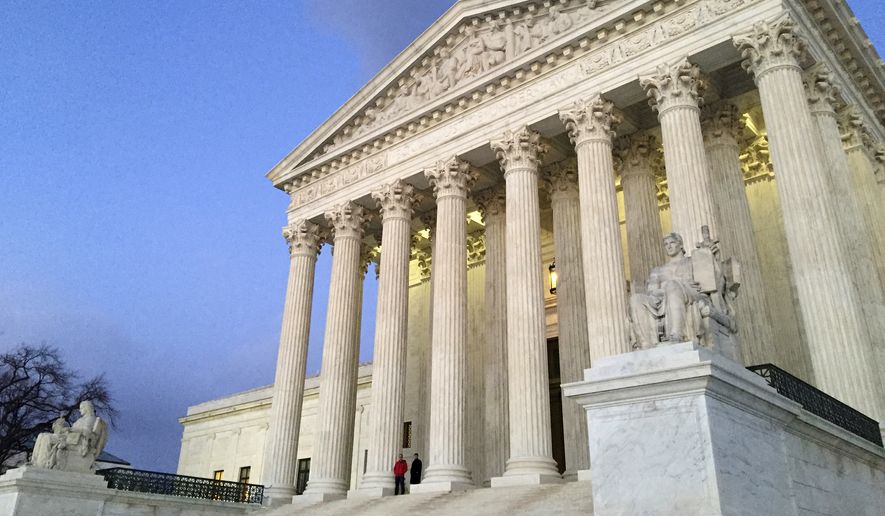The government cannot strip citizenship from someone who lied during their application process if the false statement wasn’t central to their claim for immigration benefits, the Supreme Court ruled Thursday.
The decision could make it tougher for the government to oust people it deems to have misled immigration authorities.
Justice Elena Kagan, writing for the court in the unanimous decision, said the government must prove that the lie was serious enough that if officials had known the truth at the time, they would have denied citizenship.
The case before the court involved Divna Maslenjak, a Serbian who sought refugee status in the U.S. in 1998 after civil war broke out in Bosnia.
She told authorities her family fled home because of fear of persecution and abuse after her husband evaded service in the Bosnian Serb Army. She later applied for citizenship, swearing under oath that she had never told the government false information during her immigration process.
Later, though, it was revealed Ms. Maslenjack’s husband had served as an officer in the Bosnian Serb Army and participated in the Srebrenica massacre of 8,000 Muslims.
The government charged her with lying to the government and tried to strip her citizenship based on the lie.
Justice Kagan, though, said Congress intended the law to be more lenient.
“The statute it passed, most naturally read, strips a person of citizenship not when she committed any illegal act during the naturalization process, but only when that act played some role in her naturalization,” the justice wrote.
A jury had found Ms. Maslenjak guilty of false statements, and she was stripped of her citizenship.
The new ruling says the jury got bad instructions, and said they must find more than just a false statement in order to convict Ms. Maslenjak.
“So the issue a jury must decide in a case like this one is whether a false statement sufficiently altered those processes as to have influenced an award of citizenship,” Justice Kagan wrote.
Matthew Ralph, a partner at Dorsey & Whitney, said this case dramatically limits the government’s ability to take away someone’s citizenship.
“Technically, this is a ’causation’ decision — the Supreme Court is demanding evidence that illegality caused citizenship before it can be used to revoke citizenship,” Mr. Ralph said.
• Alex Swoyer can be reached at aswoyer@washingtontimes.com.




Please read our comment policy before commenting.